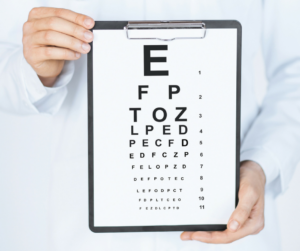
According to recent statistics, more than 24 million Americans have cataracts. Cataracts is one of the leading causes of blindness in the United States because if it is left untreated, cataracts can indeed lead to blindness. In addition, the longer cataracts are left untreated, the more difficult it can be to successfully remove the cataract and restore vision.
During Cataract Awareness Month in June, the American Academy of Ophthalmology and Evergreen Eye Center would like to remind the public that early detection and treatment of cataracts is critical to preserving sight.
What is a cataract?
A cataract is a clouding of the eye’s lens, which blocks or changes the passage of light into the eye. The lens of the eye is located behind the pupil and the iris. It is normally transparent.
When it is cloudy, vision may become blurry or dim because the cataract stops light from properly passing through to the retina.
What are the risk factors for developing a cataract?
Most often a cataract is a symptom of growing older. However, some risk factors may lead to getting a cataract at a younger age. This can include:
• Long-term exposure to UV rays from the sun
• Certain diseases, such as diabetes
• Inflammation in the eye
• Long-term steroid use
• Eye injuries and diseases
• Smoking
What are the symptoms of a cataract?
Symptoms of cataracts can vary. They include issues such as:
• Blurred vision, double vision, or seeing ghost images
• Dull or yellow vision, or the sense of a “film” over the eyes
• Lights seeming too dim for reading or close-up work
• Being extra sensitive to light
• Seeing a milky or yellowish spot in the pupil
What to do?
If you think you might have a cataract, talk to your primary care physician or your community optometrist. They can recommend further testing or next steps.
The key to preventing vision loss is regular eye exams. The American Academy of Ophthalmology recommends that people get a baseline eye examination at age 40, the time when early signs of disease or vision changes may occur. If you are 65 or older, you should get a complete eye exam every one or two years, even if you have no problem seeing well. Be sure to ask your eye doctor for a dilated eye exam.
If you have questions about cataract surgery options, such as our drop-less cataract surgery, Evergreen Eye Center can help with that discussion. Call 1.800.340.3595 to make an appointment.

